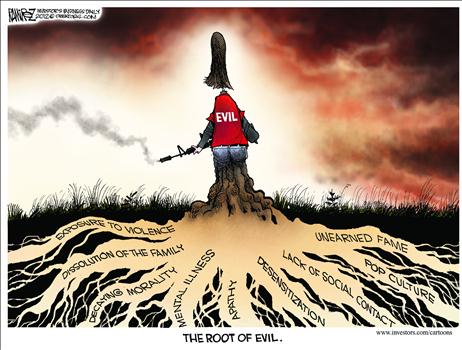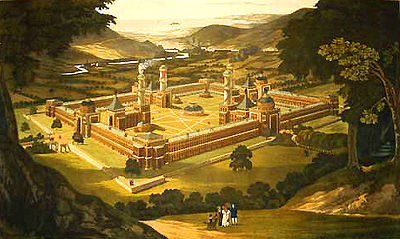The Split Second Photograph – How to capture lightning
Alright, it’s time for a tutorial on one of my favorite things to photograph! Lightning. Many people (even physics professors) think that it’s impossible, but it’s actually not that difficult. With enough patience and the right equipment, any one can do it.
You’re going to need:
- Camera with a manually settable shutter speed, and manual focus.
- Tripod
- Wired/wireless shutter release (optional)
How it’s done:
You’ll have to wait till it’s reasonably dark outside before this will work. You can take lightning photos in the day, but you have to buy some expensive equipment. (You can create a “darker” sky by using Neutral Density filters.)
Put your camera in Manual mode. Set the aperture to somewhere around f/9, and the ISO to anywhere from 100-400, depending on how dark the sky is. The lighter the sky, the low you want your ISO to be. If possible, set your shutter speed to Bulb. If your camera doesn’t have that option, set it to the longest shutter speed possible, (Probably something like 15 or 30 sec.)
Mount your camera on a tripod and point it in a direction, where the lightning strikes are reasonably consistent. Be sure that you’re in a safe location! (Shooting through clean windows, or on a covered porch works well.) Set the focus to manual, and focus on the horizon, or wherever the lighting is striking. If there’s nothing to focus on, set it to a little bit less than infinity.
Now you’re ready to shoot. If you have a remote trigger, use it. Otherwise set the shutter drive mode to a 2 second delay. Leave the shutter open for as long as possible, or if your using Bulb, leave it open until you get a strike (unless the strike is more than about 2 minutes in coming).
Now just be patient, and keep taking pictures till you get what you want. The above photo was shot late at night out of my bedroom window. I hadn’t taken anything good all evening, and I was about to call quits, when that triple strike happened along. 🙂
How it works:
Instead of taking a picture the moment a strike happens, you let the strike take the picture. That’s why it’s got to be dark. When you open up your shutter, only minimal light hits the sensor. When the strike happens, it throws it’s light on your sensor, and the picture is made. As long as the camera is sitting still on a tripod, there should be no motion blur. Just an awesome photo.
Have fun, and don’t let the weather destroy you or your camera.
Superior Advertising
The day in which we live, is a day filled with advertisements. You wake up in the morning to the ringing of the phone. It’s John from “End All Your Cares Corporation. Are you interested?” After politely telling him “thank you very much”, you hang up and grab the cereal box. It’s covered with ads. You check your email, and surf the web, half the page is covered with those bright little things that promise paradise, or at least luxury. While driving to work you notice that the roadsides are plastered in bill boards. What’s going on? Companies, individuals, and organizations are eager for your approval. They wish you to view them in a positive way. So much so, that you buy in to what they have to offer. Now what I want to do today is take a look at a similar, yet far more important advertising campaign. It’s the quest to fulfill Christ’s command to “Let your light so shine before men, that they may see your good works, and glorify your Father which is in heaven.” (KJV Matthew 5:16) Perhaps inadvertently, I believe the modern church misses the mark when attempting to be God’s representative. In light of this, the question is, how should we seek to “advertise” God, in order to glorify his name?
Like any other employee working in public relations, the obvious first step is to determine the attributes, and wishes of our employer, or in other words, what he wants us to advertise. Love, forgiveness, and grace, all come to mind when thinking of the One we are to represent. These are indeed very important. However, God’s most important attribute which lay’s a foundation for all the others, is Holiness. Isaiah the prophet relates that he saw the LORD sitting on a throne surrounded by seraphim crying “Holy, Holy, Holy, is the Lord of Hosts.” (KJV Isaiah 6:1-3) Asked by his disciples what they should pray, Jesus answered “Our Father who art in heaven, hallowed be thy name.” (KJV Matthew 6:9) He is undoubtedly a Holy God, but what exactly does that imply? In the Bible we often see comparisons between what is holy, and what is profane, or put more simply, common. When God gave the Israelites the law, He said “Be ye Holy, for I am Holy.” (KJV Leviticus 1:44) By following the rules, their corrupted blood wasn’t made pure, but what they did achieve was distinction, between them –God’s people-, and the rest of the world. You see, holiness is simply, the state of being set apart, from what is ordinary, or unholy. As to the wishes of our employer, I believe He has commissioned us to make Him “look good” by declaring His holiness to others.
Again, the question is “How?” The choices I believe can be easily summarized in three types of painters; The Defacer, the Mimic, and the Artist.
Now a defacer is someone who will take a good picture, and whether by accident, lack of respect, or blatant purposefulness, diminish its beauty. They’re kind of like Otto. Otto Koning was a missionary to Dutch New Guinea, and as he relates in his book, “The Pineapple Story”, was particularly fond of Pineapples; perhaps a bit too fond. It wasn’t long before he had a shipment of the plants, growing in a large garden behind his home. Three years passed. Finally the pineapple season arrived, and when it did, the natives stole every single pineapple! Otto, like every other good “human” got pretty upset. He shut down the clinic, and bought a German Shepherd to keep the people away. As a result, their babies died, and the people with pneumonia couldn’t get help. (Institute in Basic Youth Conflicts pg. all) So there he was. Instead of portraying a good image of the God he served to the natives, Otto had defaced it, by chasing them away for the sake of pineapples. Similar actions are taking place on a larger scale in today’s church. Christians are progressively blurring the bright line between what is Holy, and what is ordinary. The result? Several years ago, Time Magazine published an article entitled “Christianity’s Image Problem”. They held that Christianity used to be “Both big and beloved” (www.time.com), however times have changed. The article cited a Barna poll, which discovered some alarming facts. 38% of Americans, view Christianity in an unfavorable way. Most detrimental however is that nearly 9 out of 10 outsiders polled, view Christians as hypocritical and judgmental. (www.time.com). We’ve become today like the Israelites of old, of whom it was said through the prophet Ezekiel, “They profaned My holy name, because it was said of them, ‘These are the people of the LORD…”(NASB Ezekiel 36:20) Jesus warned against putting our light under a basket, yet that’s exactly what we’ve done, and the only thing the world now sees, is our humanity. (KJV Matthew 5:15) As the saying goes, a picture is worth a thousand words, therefore regardless of our message, it’s that image that matters.
Attempting to solve this problem, many Christians fall under the category of the second Painter, known as the mimic, one who copies varies styles other than their own to appeal to a larger base. As Christians, it is our duty to witness to the lost, and many believe that mimicking the world at least to a certain extent will make Christianity appealing to a variety of groups. In fact, the apostle Paul seemed to advocate this when he said “To the Jews I became a Jew… to the weak, I became weak… To those not having the law I became like one not having the law…” (NIV I Corinthians 9:20-22) Now Paul was right about what he said. Cultural adjustments are important, sure, but not when they conflict with God’s holiness. As the church copies the world more, it becomes mingled with the unholy practices of a secular society, causing God to look commonplace. The ordinary is canceling out the extraordinary. You cannot fail to advertise a company’s chief advantages and expect to win. No effective advertisement says “Buy from us because we’re the same as our competitors.” To promote God’s name you can’t be a mimic.
Rather, we must be genuine, all the way through, which leads us to the third and final Painter, known as the artist, who like an expert company representative, seeks above anything else, to make his master look good. He belongs to the people of which Peter speaks in his very first book saying, “you are… an holy nation, a peculiar people; that you should show forth the praises of him…” (American KJV I Peter 2:9) Their commission, he continues, is to “abstain from fleshly lusts…having your conversation honest among the Gentiles: that, they may by your good works, which they shall behold, glorify God…” (American KJV I Peter 2:12) Otto Koning the pineapple guy eventually realized that what he was doing, spoke incorrectly of God, and changed his occupation, from a defacer, to an artist. The people continued to steal his pineapples, but it wasn’t long before they noticed he no longer got angry. One day they confronted him with this interesting, and rather unexpected statement. “You have become a Christian haven’t you?” (Institute in Basic Youth Conflicts 24) All those years, Otto had failed to practice what he preached. When he changed, God’s name was glorified and many of the people around him became Christians. (Institute in Basic Youth Conflicts pg. all) You see, as Walter Bagehot pointed out “An ambassador is not simply an agent; he is also a spectacle.” (www.brainyquote.com)The world is watching us, as if we were an advertisement for our King. If they see ordinary, they have no desire to buy in, but if they see the extraordinary, well it’s a completely different story. To be an expert artist, we must put aside anything that conflicts with portraying God’s holiness.
Yes, we live in a world filled with advertisements, but the important thing is, as followers of the Lord Jesus Christ, we are a part of the daily ads. In the words of Bible scholar Dwight Pryor, “We’re already are witnesses, but whether we’re a good one or a bad one, that’s up to us.” (Pryor) Today, we’ve taken into consideration three types of painters, to effectively portray God; the Defacer, the Mimic, and the Artist. Now it’s up to us to determine which one we will be. Defacing God’s image is clearly out of the question. Mimicking the world for the sake of Christ seems plausible, yet we cannot let our changing culture redefine who we are, and how we act. The challenge I want you to take home today, is the challenge of being a true Artist for our God. Someone who unlike the former Otto Koening, seeks to emulate Christ with their actions; Someone who instead of mingling with the crowd, stands out from the crowd; Someone one, who so effectively paints the picture of God, that people take a look and say, “Wow! What an awesome God!” The key to this challenge is simple. Be different. In other words, don’t be ordinary, be extraordinary. In the Sermon on the Mount, Jesus declared “You are the salt of the earth.” (American KJV Matthew 5:13)It is our duty to make sure that salt does not lose its savor to the flavor of the ordinary.
Therefore, make it a point every day, whether at work, home, or at church, with family, or friends, to advertise God, through your words, actions, and attitudes; for it is then, and only then, that “your light will so shine before men, and they will see your good works, and glorify our Father in Heaven.” (KJV Matthew 5:16)





